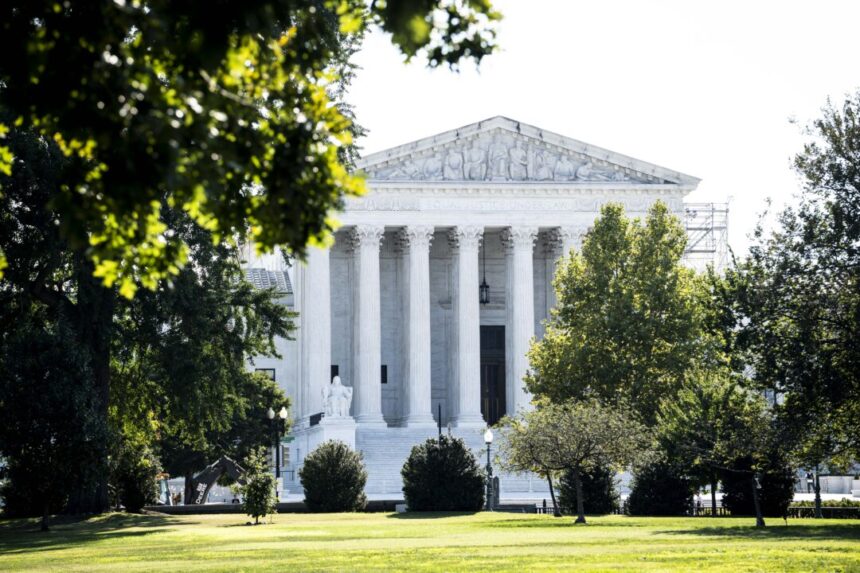Motorists who successfully sued over a license suspension law that was later repealed and obtained an injunction blocking it argue that Virginia should be responsible for covering their legal expenses.
The upcoming Supreme Court case will address whether plaintiffs who achieve partial success in civil rights lawsuits should be entitled to have the government they sued pay for their attorney’s fees.
Civil rights activists and governments both assert that the outcome of this case carries significant implications.
The dispute centers around whether activists who secure a preliminary injunction in a lawsuit should be able to demand that governments cover their legal costs.
If the Court rules against Virginia in this instance, it could potentially empower citizens to sue governments in civil rights cases, as argued by the Legal Aid Justice Center of Charlottesville, Virginia, which is representing the motorists.
On the other hand, Virginia and various states and localities argue that awarding legal costs to litigants who do not ultimately win a final judgment in court is unjust.
According to the National Association of Counties, allowing litigants to block laws with preliminary injunctions before the case is fully adjudicated could result in excessive taxpayer-funded settlements that lack a real connection to the actual damages or constitutional significance of the case.
The case in question, Lackey v. Stinnie, involves a repealed state statute in Virginia that mandated automatic license suspensions for failure to pay court fines or fees without notice or a hearing.
The lawsuit was based on the assertion that the statute violated equal protection and due process rights, and the federal district court temporarily blocked the law in 2018, which was later repealed by the Virginia General Assembly.
The key issue at hand is the interpretation of the term “prevailing party” in the context of attorney’s fees in civil rights cases.
In this case, the motorists who sued Virginia for attorney’s fees argued that they were prevailing parties under Section 1988, which requires the losing party to pay the attorney’s fees of the prevailing party in civil rights lawsuits.
The district court initially denied the drivers’ petition, but the U.S. Court of Appeals for the Fourth Circuit overturned the ruling, stating that the plaintiffs had prevailed and were eligible for a fee award.
The Supreme Court will now consider whether winning a preliminary injunction in a civil rights lawsuit obligates the losing party to cover legal expenses, as federal appeals courts have varied in their interpretations of this issue.
Johanns (2005) pointed out that preliminary injunctions are typically granted based on a likelihood of success on the merits, which means that parties may not often prevail solely based on these events. However, some Circuits have found that a prediction of future success can be sufficient in certain circumstances.
Virginia appealed to the Supreme Court, which approved its petition on April 22. Gerald Lackey, commissioner of the Virginia Department of Motor Vehicles (DMV), argued that a prevailing party is one who ultimately prevails on the merits in the litigation or obtains a final judgment in its favor, citing legal precedents.
Georgia and 18 states supported Virginia, emphasizing the need for clear and predictable rules regarding legal fee awards. The federal government also supported Virginia’s position, stating that a prevailing party is someone who is granted relief at the conclusion of a legal action when the court pronounces judgment.
One of the drivers, Damian Stinnie, argued that preliminary injunctions should not categorically prevent a party from being considered a prevailing party. He stated that tangible relief from a court order that is never undone on the merits should determine prevailing party status.
Experts consulted by The Epoch Times expressed support for the drivers’ position. They believed that challenging the state law regarding license revocation for reasons other than dangerous driving was justified. They also expressed concerns about setting a bad precedent by allowing governments to avoid financial responsibility by changing policies.
In conclusion, the article highlights the ongoing legal battle between Virginia and drivers challenging the state’s license revocation policies. It also discusses the implications of the case on prevailing party status and the need for clear rules regarding legal fee awards. Can you please rewrite this sentence?
Source link





